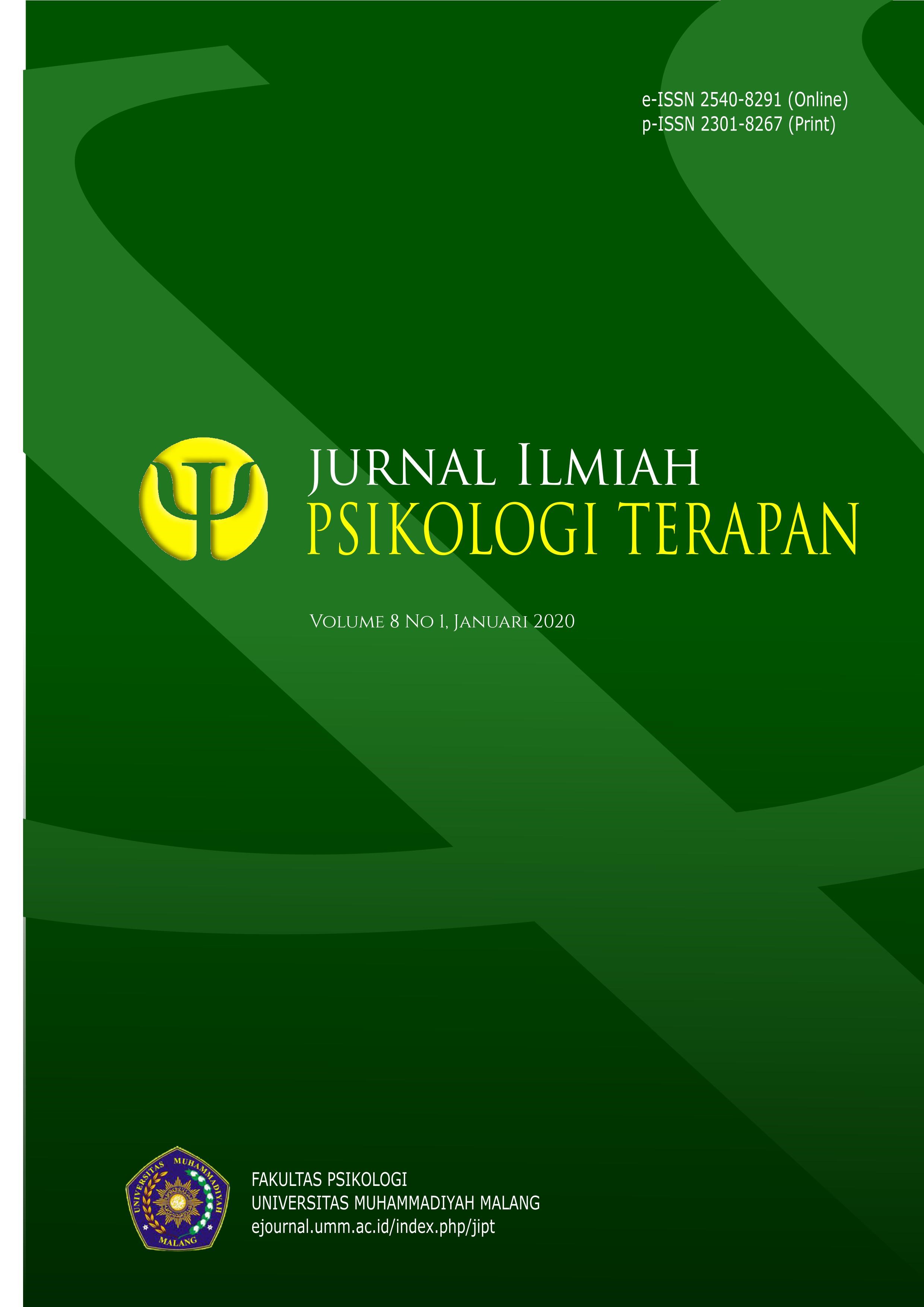Pengukuran perilaku dan niat beli produk kosmetik halal melalui modifikasi theory of planned behavior (TPB)
DOI:
https://doi.org/10.22219/jipt.v8i1.8769Keywords:
theory of planned behavior, cosmetics, halal, product knowledge, religiosityAbstract
Objectives: the purpose of this study was to study the relationship attitudes, subjective norms and perceptual controls related to religiosity, and product knowledge about the purpose of buying and helping Muslim consumers in buying halal cosmetic products.
Method: the subject in this study was Muslim students aged 17-23 years who were studying at State Universities (PTN) in the Province of Daerah Istimewa Yogyakarta. The sampling technique uses purposive sampling. The analytical method used is multiple linear regression. Data collection uses a closed questionnaire with a total of 275 respondents.
Findings: the findings of this study indicate that religiosity, product knowledge, attitudes, subjective norms, and perception control have a positive and significant influence on consumers' intentions in buying halal cosmetic products
Conclusions: it is expected to always pay attention and know the halal label and the content on the cosmetic products to be used, so as to avoid products that are not halal or have content that is prohibited by religion.
Downloads
References
Aditami, S. (2016). The Analysis Of Halal Product Purchase Intention Using Theory Of Planned Behavior ( TPB ): An Application On Bakery Product Consumption. Muhammadiyah University of Surakarta.
Ahmad, A. N., Rahman, A. A., & Rahman, S. A. (2015). Assessing Knowledge and Religiosity on Consumer Behavior towards Halal Food and Cosmetic Products. International Journal of Social Science and Humanity, 5(1), 10–14.
Aisyah, M. (2015). Peer Group Effects On Moslem Consumer ’ S Decision To Purchase Halal-Labeled Cosmetics. Al-Iqtishad Journal of Economic Islamic, (95), 165–180.
Ajzen, I. (2005). Attitudes, Personality and Behavior (2 edition; I. Ajzen, Ed.). New York: McGraw-Hill.
Briliana, V., & Noviana, R. (2016). The Antecedents And Outcome Of Halal Cosmetic Products: A Case Study In Jakarta Indonesia. International Journal of Business, Economics and Law, 11(2), 1–9.
Endah, N. H. (2018). Perilaku Pembelian Kosmetik Berlabel Halal Oleh Konsumen Indonesia Consumers’s Purchasing Behavior Toward Halal Labeled. Jurnal Ekonomi Dan Pembangunan, 22(1), 11–25.
Farrag, D. A., & Hassan, M. (2015). The Influence Of Religiosity On Egyptian Muslim Youths ’ Attitude Towards Fashion. Journal of Islamic Marketing, 6(1), 95–108.
Ghozali, I. (2018). Aplikasi Analisis Multivariate dengan Program IBM SPSS 25. Semarang: Badan Penerbit Universitas Diponegoro.
Hair, J. F., Black, W. C., Babin, B. J., & Anderson, R. E. (2007). Overview of Multivariate Methods. London, United Kingdom: Pearson.
Haque, A., Anwar, N., Tarofder, A. K., Ahmad, N. S., & Syarif, S. R. (2018). Muslim Consumers’ Purchase Behavior Towards Halal Cosmetic Products In Malaysia. Management Science Letter, 8, 1305–1318.
Larasati, A., Rahayu, S., Hati, H., & Safira, A. (2018). Religiusitas dan Pengetahuan Terhadap Sikap dan Intensi Konsumen Muslim untuk Membeli Produk Kosmetik Halal. 8(April), 105–114.
Ramdhani, N. (2011). Penyusunan Alat Pengukur Berbasis Theory of Planned Behavior 1. 19(2), 55–69.
Rochmanto, B. Al, & Widiyanto, I. (2015). Pengaruh Pengetahuan Produk Dan Norma Religius Terhadap Sikap Konsumen Dalam Niat Mengkonsumsi Produk Makanan Dan Minuman Halal (Studi Kasus di Kota Semarang). Diponegoro Journal of Management, 4(1), 1–12.
Rohmatun, K. I., & Dewi, C. K. (2017). Pengaruh Pengetahuan Dan Religiusitas Terhadap Niat Beli Pada Kosmetik Halal Melalui Sikap. Jurnal Ecodemica, 1(1), 27–35.
Rois, E. L. H. (2016). Pengaruh Religiusitas, Norma Subyektif Dan Perceived Behavioral Control Terhadap Niat Membeli Produk Makanan Ringan Berlabel Halal. Universitas Negeri Yogyakarta.
Suparno, C. (2017). Anteseden Niat untuk Memilih Jasa Halal Beauty Center: Aplikasi Theory of Planned Behavior dan Peran Religiusitas. Media Ekonomi Dan Manajemen, 32(1), 1–13.
Downloads
Published
How to Cite
Issue
Section
License
Authors who publish with Jurnal Ilmiah Psikologi Terapan agree to the following terms:
- For all articles published in Jurnal Ilmiah Psikologi Terapan, copyright is retained by the authors. Authors give permission to the publisher to announce the work with conditions. When the manuscript is accepted for publication, the authors agree to automatic transfer of the publishing right to the publisher.
- Authors retain copyright and grant the journal right of first publication with the work simultaneously licensed under a Creative Commons Attribution-ShareAlike 4.0 International License that allows others to share the work with an acknowledgment of the work's authorship and initial publication in this journal.
- Authors are able to enter into separate, additional contractual arrangements for the non-exclusive distribution of the journal's published version of the work (e.g., post it to an institutional repository or publish it in a book), with an acknowledgment of its initial publication in this journal.
- Authors are permitted and encouraged to post their work online (e.g., in institutional repositories or on their website) prior to and during the submission process, as it can lead to productive exchanges, as well as earlier and greater citation of published work (See The Effect of Open Access).

This work is licensed under a Creative Commons Attribution-ShareAlike 4.0 International License.











